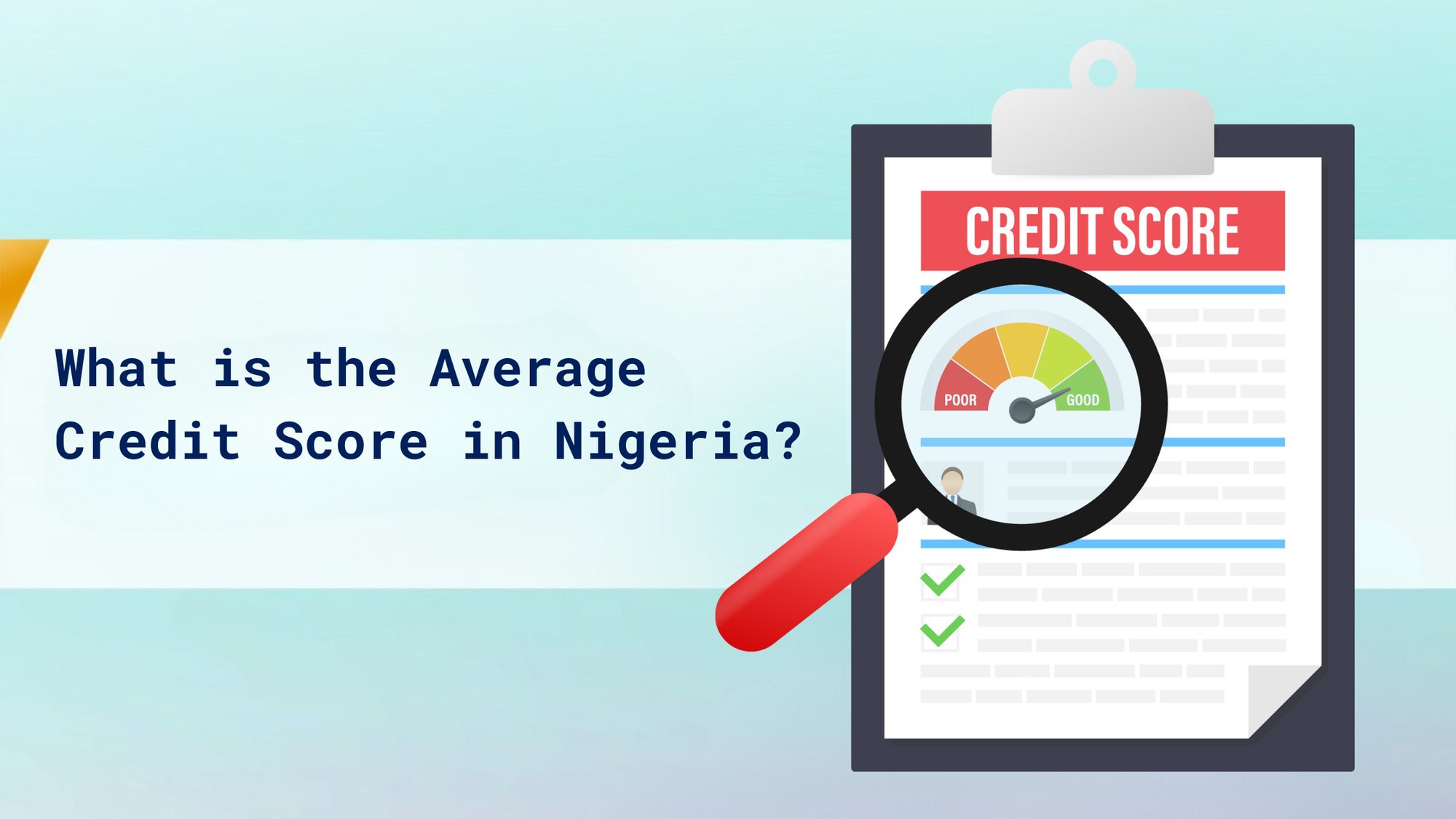
What is the Average Credit Score in Nigeria?
Author Taiwo Temitope-Adesope
A good credit score is the key that unlocks access to loans and financial services that can help you achieve your goals. However, many Nigerians find credit scores confusing or overwhelming. This comprehensive guide aims to demystify credit scores in the Nigerian context. We will explore what constitutes a credit score, global standards, factors that influence your score, current averages in Nigeria, and most importantly, how to start improving your credit today. Whether you are starting your financial journey or planning to apply for a mortgage, understanding your creditworthiness is essential to make informed decisions. Let's start!
What is a Credit Score?
A credit score is a three-digit number ranging between 300-850 that indicates your creditworthiness and likelihood to repay debts. It is calculated based on your credit history and activity using statistical models by credit bureaus.
In Nigeria, credit scores are provided by institutions like Credit Registry and CRC Credit Bureau. They analyse information from your credit report to assign a score. The higher your credit score, the lower your perceived credit risk to lenders.
Good credit scores can help you qualify for loans, credit cards, and other services at better terms. On the other hand, low scores can lead to higher interest rates or outright rejection. Monitoring your credit score regularly is key to achieving financial goals and avoiding pitfalls.
Global Perspective: Average Credit Scores in the U.S. and Beyond
In the United States, the average FICO credit score is currently 716, while the average Vantage Score is 695. Anything above 670 is generally considered good credit, with scores above 760 classified as excellent.
By comparison, Nigeria's average credit score is estimated to be around 570 – significantly lower than global averages. This is often attributed to low credit penetration and utilization in the country. As more Nigerians gain access to formal financial services, average scores are expected to increase.
Factors Influencing Credit Scores
Your credit score is determined by several key factors:
- Payment History (35%): Making timely payments on all debts and avoiding defaults influences scores the most. Even one missed payment can negatively impact your credit score.
- Credit Utilization (30%): Using too much of your available credit limits, even if making minimum payments, can reduce your score. Ideally keep utilization below 30%.
- Length of Credit History (15%): The longer you have maintained accounts in good standing, the better your creditworthiness. Having old, active accounts has a positive impact.
- Credit Mix (10%): Having different types of credit – mortgage, credit cards, student loans etc – improves your credit diversity and score.
- New Credit Inquiries (10%): Too many new credit applications in a short span can negatively affect your score. Space out applications and avoid unnecessary hard inquiries.
Average Credit Score by Demographics
- Age: Credit scores tend to improve with age as credit history lengthens. Nigerians above 50 have an average score of 620, while youth under 30 average 510.
- State: Residents of Anambra, Ogun, and Lagos have the highest average scores between 590-605. The lowest averages are seen in Borno and Yobe states.
- Income: Higher-income Nigerians making above ₦500k/month have average scores of 615. Middle-income professionals average 565, while lower-income groups average 520.
The Nigerian Credit Landscape
The credit rating system in Nigeria is still developing, but it has made major strides in recent years. The advent of credit bureaus like CRC Credit Bureau and Credit Registry has enabled formal credit histories and scores for millions of Nigerians.
However, low financial literacy and debt avoidance attitudes limit credit penetration. Many avoid loans and credit cards, limiting the data available to generate accurate credit scores. The Central Bank of Nigeria (CBN) has launched initiatives to increase the uptake of financial services and credit across demographics.
How to Improve Your Credit Score in Nigeria
Here are practical tips to start improving your credit score in Nigeria today:
- Pay bills on time: Set payment reminders to avoid missed or late payments. Even one default can drastically hurt your score.
- Lower credit utilization: Keep balances below 30% of your credit limit on cards and loans. High utilization ratios negatively impact your score.
- Maintain old accounts: Keep your oldest credit accounts active with low balances. The length of credit history improves your score.
- Diversify credit types: Take a personal loan or secured credit card in addition to unsecured cards. A healthy credit mix boosts your score.
- Limit credit inquiries: Apply only for loans and cards you need urgently. Too many inquiries from multiple lenders will hurt your rating.
- Use credit-builder tools: Services like CreditClan allow you to establish a positive repayment history and improve your credit score.
Common Misconceptions
There are some common misconceptions about credit scores worth clarifying:
● Myth: Credit scores below 550 are terrible.
Fact: In the Nigerian context, a fair credit score ranges from 550 to 599. Scores above 600 are considered good.
● Myth: Checking your own score reduces it.
Fact: Soft inquiries you make about your own credit file do not affect your score at all.
Future of Credit Scoring in Nigeria
Technological developments are expected to increase credit access and improve risk modelling used to determine scores in Nigeria. The use of big data, alternative credit information like phone bills, and fintech innovations will likely transform the landscape. Over the next decade, average scores could approach 650, indicating robust growth in financial inclusion. Regulatory oversight will remain critical to protect consumer rights.
Conclusion
A healthy credit score is the gateway to personal and financial freedom. While the Nigerian credit system is still evolving, knowledge of how to establish responsible credit habits is more valuable than ever. Use the guidance provided to start monitoring and improving your creditworthiness today. With commitment and patience, you too can reach your milestone score to achieve your dreams!
Frequently Asked Questions
Q: How do I check my credit score in Nigeria?
A: You can check your credit score on nairaCompare.

Q: How long does negative information stay on your credit file in Nigeria?
A: Negative marks like defaults and court judgments can remain for 6 years. Late payments can remain for 2 years.
Q: Can anyone access my credit report without my permission?
A: No, credit bureaus cannot share your information without your consent except to authorized institutions for lawful purposes.
Additional Resources
- Check your credit score for free: https://app.nairacompare.ng/credit-score
- CRC Credit Bureau: https://www.crccreditbureau.com
- CreditRegistry: https://creditregistry.ng
About Author

Taiwo Temitope-Adesope
Taiwo is a passionate storyteller and strategist dedicated to empowering women and crafting compelling narratives. A First-Class graduate in Mass Communication from Covenant University, she specializes in writing, public relations, and digital marketing. As a Content Manager at Suretree, she drove a 50% increase in web traffic through SEO and boosted website engagement by 60% in just four months. Her leadership experience includes serving as Public Relations Officer for the Covenant University Student Council and contributing to impactful volunteer initiatives. With expertise in strategic thinking and business acumen, Taiwo continues to create stories that inspire confidence and imagination.









